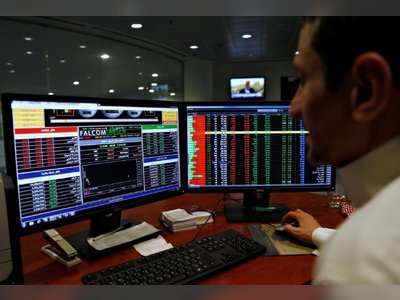0:00
0:00
Inflation is at historic highs, but Americans are spending money like they don’t care
The most newsworthy economic data day used to be jobs, but as job growth continues to be strong, attention is increasingly focused on inflation. That’s because inflation continues to be at historic highs.
According to the Bureau of Labor Statistics, prices rose 1 percent in May alone and 8.6 percent in the past year, a bit higher than economists’ expectations and higher than the 8.3 percent increase in April.
Inflation has become a painful and constant reminder for consumers. They’re seeing inflation in energy, food and housing prices. Particularly as Americans are out traveling again after the pandemic, vacations also seem more expensive than they used to. One of the largest contributors to inflation in May in the “core” categories (i.e., excluding food and energy) was plane tickets, which are being driven up in price by strong demand and expensive fuel.
The question now is how American consumers will respond. Recent data shows that consumers are out and spending again, even if they’re not buying the patio furniture, exercise clothing and appliances they were before.
Managing Editor Kay Steiger grabbed Grid’s Domestic Economics Reporter Matthew Zeitlin to break down the latest inflation report.
With inflation, there are two stories. One is a set of goods and services that are very linked to the prices of commodities like oil and various grains. This includes food, gas, electricity and so on. Energy prices rose about 4 percent in May alone, with food going up over 1 percent, while the index that excluded food and energy was up “only” 0.6 percent in May.
The second big trend is in services. For a while, the story with inflation was that goods, especially durable goods (thinks cars, furniture, appliances), shot up in price because of huge demand from housebound consumers that then snarled supply chains all over the globe.
But now we’re seeing rising inflation in services — which was at 0.6 percent in May, almost double what it was at the end of last year. Service spending takes up a higher portion of overall spending and is thought by many economists to rise slower — but also fall slower as well.
The Bureau of Labor Statistics’ measures of hourly wages, which adjusts for inflation, fell 0.6 percent in May alone and 3 percent over the past year. The monthly fall was the result of 0.3 percent of earnings growth and the 1 percent inflation, while the weekly earnings figure fell 0.7 percent. In the past year, hourly earnings fell 3 percent while weekly wages fell 4 percent because of a slight decrease in average hours worked.
In the past year, energy inflation has been about four times higher than overall inflation, so it’s definitely dragging the number up. For gasoline specifically, there isn’t really an end in sight. Gasoline demand tends to really only substantially fall if there’s some kind of massive economic calamity. Right now, many expect American consumers to eagerly drive this summer and just face the pain at the pump.
With demand expected to be high, the only hope for price relief comes from supply, but that’s unlikely as investors in energy companies are now running them on a tight leash and because refinery capacity in the United States has actually fallen since before the pandemic. Meanwhile, the American embargo of Russian oil does not appear to be ending any time soon, nor does Russia’s invasion of Ukraine, which spiked food and energy prices all over the globe.
Nearly anywhere you look, there’s inflation. In the United Kingdom, inflation hit 9 percent in April, largely due to gas and electricity prices spiking. In the European countries that use the euro, inflation is up as well, even if the overall economies are somewhat sluggish. Europe is even more directly exposed to energy prices than the United States, thanks to the fact that much of it is dependent on Russia for gas and oil.
Like the United States, some European countries are seeing the highest rates of inflation since the 1980s, even if so-called core inflation, which excludes food and energy prices, is still elevated, even if less so than in the U.S.
Globally, the World Bank warned in a report this week that the economy risks a combination of sluggish growth and high inflation, otherwise known as stagflation, that could have “potentially harmful consequences for middle- and low-income economies alike.” Skyrocketing food and energy prices — and the risk of not just high prices, but actual shortages — have and could be devastating to lower-income countries. Sri Lanka has been thrown into an economic crisis and can no longer afford its fuel and food bill. Furthermore, the rise in interest rates in rich countries to curb inflation could hammer poorer countries as investors rush into rich countries offering high interest rates and leave poorer economies behind.
Jason Furman, a former Obama administration economist and a persistent critic of the Biden administration and Federal Reserve’s approach to stimulus, has argued that the differences in how inflation has been experienced in Europe and the United States is due to the United States doing more fiscal stimulus, running the economy hotter, and thus experiencing broad-based, higher inflation. Europe, Furman argues, did less to stimulate the economy, is growing less, spending less, and its high inflation is largely due to high energy costs. Furman even argues that the power of the American consumer and its splurge on goods in 2020 and 2021 even drove up inflation across the world by snarling supply chains and driving up goods prices globally.
On the other hand, there may be a difference in degree. The inflation in the U.S. is also driven by energy prices, and much of the increased purchases of goods can’t be attributed just to stimulus, but also to the unique economic conditions of the pandemic. And the Russian invasion of Ukraine and subsequent spike in food and energy prices has little to do with monetary policy or stimulus; it’s instead a genuine shock to the economy’s ability to supply key commodities.
Inflation has become a painful and constant reminder for consumers. They’re seeing inflation in energy, food and housing prices. Particularly as Americans are out traveling again after the pandemic, vacations also seem more expensive than they used to. One of the largest contributors to inflation in May in the “core” categories (i.e., excluding food and energy) was plane tickets, which are being driven up in price by strong demand and expensive fuel.
The question now is how American consumers will respond. Recent data shows that consumers are out and spending again, even if they’re not buying the patio furniture, exercise clothing and appliances they were before.
Managing Editor Kay Steiger grabbed Grid’s Domestic Economics Reporter Matthew Zeitlin to break down the latest inflation report.
With inflation, there are two stories. One is a set of goods and services that are very linked to the prices of commodities like oil and various grains. This includes food, gas, electricity and so on. Energy prices rose about 4 percent in May alone, with food going up over 1 percent, while the index that excluded food and energy was up “only” 0.6 percent in May.
The second big trend is in services. For a while, the story with inflation was that goods, especially durable goods (thinks cars, furniture, appliances), shot up in price because of huge demand from housebound consumers that then snarled supply chains all over the globe.
But now we’re seeing rising inflation in services — which was at 0.6 percent in May, almost double what it was at the end of last year. Service spending takes up a higher portion of overall spending and is thought by many economists to rise slower — but also fall slower as well.
The Bureau of Labor Statistics’ measures of hourly wages, which adjusts for inflation, fell 0.6 percent in May alone and 3 percent over the past year. The monthly fall was the result of 0.3 percent of earnings growth and the 1 percent inflation, while the weekly earnings figure fell 0.7 percent. In the past year, hourly earnings fell 3 percent while weekly wages fell 4 percent because of a slight decrease in average hours worked.
In the past year, energy inflation has been about four times higher than overall inflation, so it’s definitely dragging the number up. For gasoline specifically, there isn’t really an end in sight. Gasoline demand tends to really only substantially fall if there’s some kind of massive economic calamity. Right now, many expect American consumers to eagerly drive this summer and just face the pain at the pump.
With demand expected to be high, the only hope for price relief comes from supply, but that’s unlikely as investors in energy companies are now running them on a tight leash and because refinery capacity in the United States has actually fallen since before the pandemic. Meanwhile, the American embargo of Russian oil does not appear to be ending any time soon, nor does Russia’s invasion of Ukraine, which spiked food and energy prices all over the globe.
Nearly anywhere you look, there’s inflation. In the United Kingdom, inflation hit 9 percent in April, largely due to gas and electricity prices spiking. In the European countries that use the euro, inflation is up as well, even if the overall economies are somewhat sluggish. Europe is even more directly exposed to energy prices than the United States, thanks to the fact that much of it is dependent on Russia for gas and oil.
Like the United States, some European countries are seeing the highest rates of inflation since the 1980s, even if so-called core inflation, which excludes food and energy prices, is still elevated, even if less so than in the U.S.
Globally, the World Bank warned in a report this week that the economy risks a combination of sluggish growth and high inflation, otherwise known as stagflation, that could have “potentially harmful consequences for middle- and low-income economies alike.” Skyrocketing food and energy prices — and the risk of not just high prices, but actual shortages — have and could be devastating to lower-income countries. Sri Lanka has been thrown into an economic crisis and can no longer afford its fuel and food bill. Furthermore, the rise in interest rates in rich countries to curb inflation could hammer poorer countries as investors rush into rich countries offering high interest rates and leave poorer economies behind.
Jason Furman, a former Obama administration economist and a persistent critic of the Biden administration and Federal Reserve’s approach to stimulus, has argued that the differences in how inflation has been experienced in Europe and the United States is due to the United States doing more fiscal stimulus, running the economy hotter, and thus experiencing broad-based, higher inflation. Europe, Furman argues, did less to stimulate the economy, is growing less, spending less, and its high inflation is largely due to high energy costs. Furman even argues that the power of the American consumer and its splurge on goods in 2020 and 2021 even drove up inflation across the world by snarling supply chains and driving up goods prices globally.
On the other hand, there may be a difference in degree. The inflation in the U.S. is also driven by energy prices, and much of the increased purchases of goods can’t be attributed just to stimulus, but also to the unique economic conditions of the pandemic. And the Russian invasion of Ukraine and subsequent spike in food and energy prices has little to do with monetary policy or stimulus; it’s instead a genuine shock to the economy’s ability to supply key commodities.











